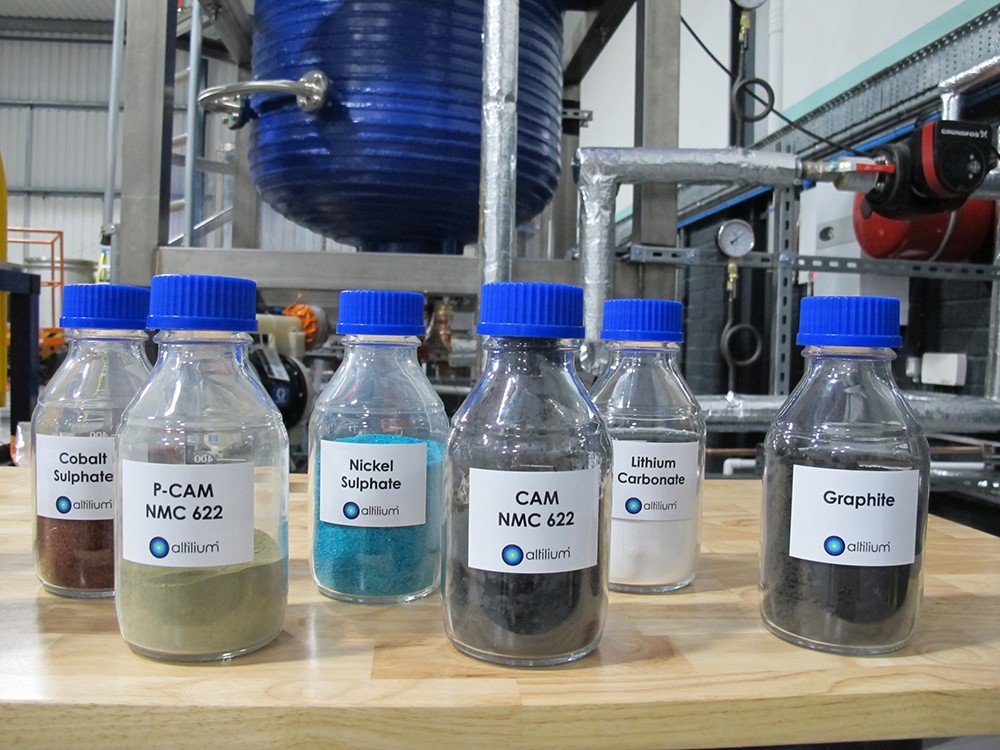Altilium, a UK-based clean technology group, has produced recycled battery cathode active materials (CAM) that are comparable to commercial materials.
Atlilium says its EcoCathode process can recover more than 95% of the critical metals, including lithium, from spent batteries, before upcycling and re-engineering them to produce new battery chemistry materials.
Results from electrochemical cycle testing of cells produced from Altilium’s recycled CAM at its ACT1 facility in Devon have shown comparable rate and cycle performance with commercially available CAM used in nickel-manganese-cobalt (NMC) 811 batteries.
The cycle cell capacity of Altilium’s recycled CAM reached 193 mAh.g⁻¹ in testing, aligning closely with the 190-194 mAh.g⁻¹ range typical for commercial CAM. X-ray diffraction (XRD) analysis confirmed that the structure of the CAM remains indistinguishable from commercial variants.
The CAM was produced as part of a collaborative research project backed by the Advanced Propulsion Centre (APC23). Altilium is now working with the UK Battery Industrialisation Centre (UKBIC) to produce battery cells using recycled CAM for validation with an automotive OEM.
“With these results, Altilum has shown recycled battery metals can perform as well as virgin metals and that critical minerals are essentially the same whether they come from a mine or an old EV battery,” said Christian Marston, Altilium’s co-founder and COO. “We have shown there is no need to compromise on performance, with the additional sustainability benefits of using recycled materials.”
Source: Altilium




